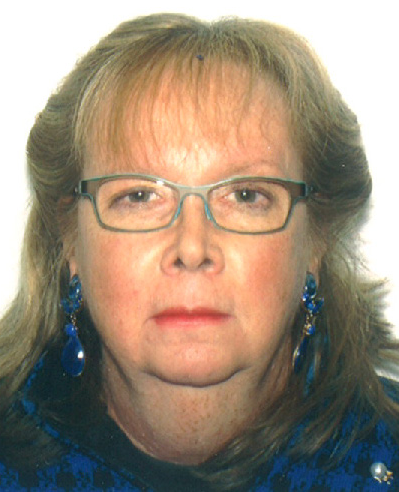Regulatory Issues and Challenges Facing Utility-Scale and Community Microgrids
Tuesday, March 19, 2019 | Track B | 1:00 - 2:15
Electricity regulation has mostly remained unchanged for the last 100 years. States enter into a "regulatory compact" with electric utilities whereby the State grants the utility an exclusive franchise right to provide electric service to customers within a specific service territory in exchange for the utility consenting to be regulated by the State. This monopoly regulation allows the electric utility to be vertically integrated, meaning that it owns the generation assets, the transmission lines, and the distribution system. Under this regulatory compact, the barriers to entry for utility-scale microgrids owned by third-parties are extraordinarily high. In markets where competition has been introduced, the traditional electric utility must divest its generation assets, making it difficult for an electric utility to own all the components of a utility-scale microgrid itself. Thus, a new regulatory compact is required to allow for the development of utility-scale microgrids by traditional electric utilities and third-parties alike.
In particular, advanced microgrids could "Uberize" local energy assets to catalyze smart community growth and development and assure robust electricity services. Employing information, communications and control technologies, these dynamic microgrids could enable resource integration, efficiencies and optimal energy investments across end use sectors, such as buildings, transportation, telecommunications, water and waste systems. However, our siloed regulatory structures present a significant barrier to unlocking value delivery. Growing electrification, digitalization and distributed energy are challenging us to modernize our regulatory approaches. Using case examples, this session will address different types of regulatory innovations (including service platforms, coordinated utility and community resource planning and development processes, local energy networks) that could help open the way to developing and managing local energy seamlessly and interchangeably within communities.
Speakers



In particular, advanced microgrids could "Uberize" local energy assets to catalyze smart community growth and development and assure robust electricity services. Employing information, communications and control technologies, these dynamic microgrids could enable resource integration, efficiencies and optimal energy investments across end use sectors, such as buildings, transportation, telecommunications, water and waste systems. However, our siloed regulatory structures present a significant barrier to unlocking value delivery. Growing electrification, digitalization and distributed energy are challenging us to modernize our regulatory approaches. Using case examples, this session will address different types of regulatory innovations (including service platforms, coordinated utility and community resource planning and development processes, local energy networks) that could help open the way to developing and managing local energy seamlessly and interchangeably within communities.
Speakers

Larisa Dobriansky
Chief Business & Regulatory Innovations Officer
General MicroGrids
Larisa Dobriansky is Chief Business & Regulatory Innovations Officer at General MicroGrids. She focuses on regulatory, institutional and financial changes that can leverage the capabilities of advanced microgrids to deliver integrated energy solutions to power systems and communities. Drawing upon over 20 years of experience in the Energy, Environmental and Financial regulatory fields, she helps shape new financing mechanisms, market designs, and utility regulatory reforms that can capture the value that an intelligent, dynamic microgrid system can provide to the Grid, Market and Communities. Her efforts are aimed at incentivizing investment in Advanced Microgrids that optimize distributed resources, expand "energy-sharing" parameters, and foster transactive energy markets.
Ms. Dobriansky has served in senior management positions within the private sector and U.S. Government. She formerly served as Deputy Assistant Secretary for National Energy Policy at the U.S. Department of Energy, where she spearheaded and secured legislative authorization for the Department's first loan guarantee program for clean energy technologies to address the "Valley of Death" and move technologies out of demonstration and into the marketplace.
Chief Business & Regulatory Innovations Officer
General MicroGrids
Larisa Dobriansky is Chief Business & Regulatory Innovations Officer at General MicroGrids. She focuses on regulatory, institutional and financial changes that can leverage the capabilities of advanced microgrids to deliver integrated energy solutions to power systems and communities. Drawing upon over 20 years of experience in the Energy, Environmental and Financial regulatory fields, she helps shape new financing mechanisms, market designs, and utility regulatory reforms that can capture the value that an intelligent, dynamic microgrid system can provide to the Grid, Market and Communities. Her efforts are aimed at incentivizing investment in Advanced Microgrids that optimize distributed resources, expand "energy-sharing" parameters, and foster transactive energy markets.
Ms. Dobriansky has served in senior management positions within the private sector and U.S. Government. She formerly served as Deputy Assistant Secretary for National Energy Policy at the U.S. Department of Energy, where she spearheaded and secured legislative authorization for the Department's first loan guarantee program for clean energy technologies to address the "Valley of Death" and move technologies out of demonstration and into the marketplace.

Patrick L. Morand
Associate
Duane Morris LLP
Patrick L. Morand practices in the area of energy regulatory law and renewable energy development. Mr. Morand counsels energy clients, including electric and gas utility companies, regional transmission organizations, renewable energy developers, and financial institutions in a wide range of energy regulatory matters before the Federal Energy Regulatory Commission and other federal and state agencies.
Associate
Duane Morris LLP
Patrick L. Morand practices in the area of energy regulatory law and renewable energy development. Mr. Morand counsels energy clients, including electric and gas utility companies, regional transmission organizations, renewable energy developers, and financial institutions in a wide range of energy regulatory matters before the Federal Energy Regulatory Commission and other federal and state agencies.

Jared Leader
Senior Associate, Advisory Services
Smart Electric Power Alliance
Jared Leader joined SEPA in June 2017, where he joins SEPA's Advisory Services team of experts consulting with multiple utility clients researching, designing and implementing renewable energy programs and business models. Engagements involve community solar and green tariff program design, facilitating industry stakeholder engagement workshops and microgrid planning and preliminary economic analysis. Jared is the staff lead for SEPA's Microgrid Working Group and co-leads SEPA's consulting engagement with the D.C. Public Service Commission facilitating the grid modernization (MEDSIS) working group process in the District.
Prior to joining SEPA, Jared spent three years as a consultant at Arcadis US. Jared was responsible for the design, implementation, and management of several environmental programs for both municipal and commercial clients in the energy and water sectors. Jared holds a bachelor's degree in civil and environmental engineering from the University of Virginia, where he conducted research on algae-based bio-fuels and focused in sustainable practice. He is currently earning his MS in Energy Policy and Climate from Johns Hopkins University in Washington, DC.
Senior Associate, Advisory Services
Smart Electric Power Alliance
Jared Leader joined SEPA in June 2017, where he joins SEPA's Advisory Services team of experts consulting with multiple utility clients researching, designing and implementing renewable energy programs and business models. Engagements involve community solar and green tariff program design, facilitating industry stakeholder engagement workshops and microgrid planning and preliminary economic analysis. Jared is the staff lead for SEPA's Microgrid Working Group and co-leads SEPA's consulting engagement with the D.C. Public Service Commission facilitating the grid modernization (MEDSIS) working group process in the District.
Prior to joining SEPA, Jared spent three years as a consultant at Arcadis US. Jared was responsible for the design, implementation, and management of several environmental programs for both municipal and commercial clients in the energy and water sectors. Jared holds a bachelor's degree in civil and environmental engineering from the University of Virginia, where he conducted research on algae-based bio-fuels and focused in sustainable practice. He is currently earning his MS in Energy Policy and Climate from Johns Hopkins University in Washington, DC.